For more information:
Email UsEducation Ambassadors
Our ambassadors are a group of researchers, MDs, and scientists who are former participants in our courses and training programs. In addition to the expertise and knowledge they bring to their respective specialties, they share a passion for the training and other resources we provide.
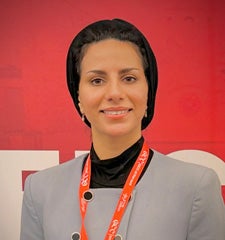 Mona Alhassan, BDS, DScD, is a dental public health resident at Harvard School of Dental Medicine. She holds a DScD in prosthodontics and is currently pursuing a MMSc in dental public health, following her BDS degree. Alhassan’s professional experience includes significant projects with organizations such as the Massachusetts Medicaid and CHIP program, the Medicaid-CHIP State Dental Association, and the Saudi Ministry of Health. All of her work focuses on leveraging data to drive policy development in dental public health and on improving healthcare outcomes through evidence-based strategies and policy enhancements.
Mona Alhassan, BDS, DScD, is a dental public health resident at Harvard School of Dental Medicine. She holds a DScD in prosthodontics and is currently pursuing a MMSc in dental public health, following her BDS degree. Alhassan’s professional experience includes significant projects with organizations such as the Massachusetts Medicaid and CHIP program, the Medicaid-CHIP State Dental Association, and the Saudi Ministry of Health. All of her work focuses on leveraging data to drive policy development in dental public health and on improving healthcare outcomes through evidence-based strategies and policy enhancements.
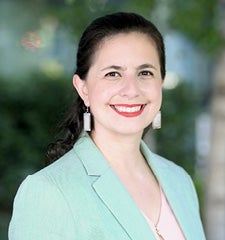 Rebecca Barber, PhD, a pediatric nurse and scientist, specializes in type 1 diabetes care for children and adolescents. With a predoctoral fellowship from Joslin Diabetes Center and postdoctoral training at Harvard University, she has led multiple research projects using continuous glucose-monitoring data to explore glycemic and psychosocial outcomes.
Rebecca Barber, PhD, a pediatric nurse and scientist, specializes in type 1 diabetes care for children and adolescents. With a predoctoral fellowship from Joslin Diabetes Center and postdoctoral training at Harvard University, she has led multiple research projects using continuous glucose-monitoring data to explore glycemic and psychosocial outcomes.
A native of Brazil, Barber is passionate about improving diabetes education and addressing healthcare disparities through technology. As a research nurse scientist at Children’s Hospital Los Angeles, she mentors clinicians and leads diabetes research. She is an active member of several diabetes societies, with three funded projects supporting her work in pediatric diabetes.
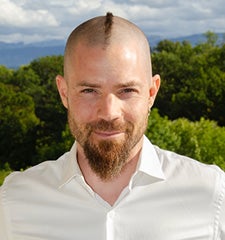 Boaz B. Feldman, BBA, MSc, PgD, is a researcher, clinician, trainer, and contemplative individual who is dedicated to fostering worldwide positive change. He was ordained as a Buddhist monk in Thailand, practiced mindfulness intensively for three years, then disrobed and trained as a counsellor at the University of Geneva in Switzerland. Feldman has led numerous psychological first aid and staff welfare missions with International NGOs, including the UN Office for the Coordination of Humanitarian Affairs (UNOCHA), Doctors Without Borders, and International Medical Corps. This work has taken him to war zones in Afghanistan, Burkina Faso, and Myanmar, and to low-income countries in Eastern Europe and Sub-Saharan Africa. He currently leads Life Itself Research in France, and is a Research Scholar at the Harvard Graduate School of Education in implementation and community-based sciences with youth.
Boaz B. Feldman, BBA, MSc, PgD, is a researcher, clinician, trainer, and contemplative individual who is dedicated to fostering worldwide positive change. He was ordained as a Buddhist monk in Thailand, practiced mindfulness intensively for three years, then disrobed and trained as a counsellor at the University of Geneva in Switzerland. Feldman has led numerous psychological first aid and staff welfare missions with International NGOs, including the UN Office for the Coordination of Humanitarian Affairs (UNOCHA), Doctors Without Borders, and International Medical Corps. This work has taken him to war zones in Afghanistan, Burkina Faso, and Myanmar, and to low-income countries in Eastern Europe and Sub-Saharan Africa. He currently leads Life Itself Research in France, and is a Research Scholar at the Harvard Graduate School of Education in implementation and community-based sciences with youth.
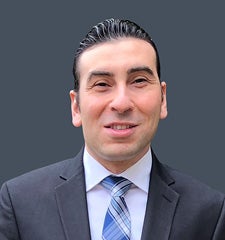 Mohamed Ghorab, PhD, is a toxicologist with more than a decade of experience in academia, research, and regulatory science at the U.S. Environmental Protection Agency. He has led critical advancements in human and environmental risk assessment, ensuring safe exposure levels for a wide range of industrial chemicals and pesticides, focusing on reducing animal testing and enhancing regulatory practices. Ghorab has significantly contributed to advancing One Health initiatives. As a visiting faculty member at the University of California, Davis, he mentors future toxicologists. His expertise is globally recognized through his involvement with the World Health Organization’s (WHO) Joint Food and Agriculture Organization/WHO Meeting on Pesticide Residues (JMPR). His exemplary contributions have been recognized with numerous prestigious accolades.
Mohamed Ghorab, PhD, is a toxicologist with more than a decade of experience in academia, research, and regulatory science at the U.S. Environmental Protection Agency. He has led critical advancements in human and environmental risk assessment, ensuring safe exposure levels for a wide range of industrial chemicals and pesticides, focusing on reducing animal testing and enhancing regulatory practices. Ghorab has significantly contributed to advancing One Health initiatives. As a visiting faculty member at the University of California, Davis, he mentors future toxicologists. His expertise is globally recognized through his involvement with the World Health Organization’s (WHO) Joint Food and Agriculture Organization/WHO Meeting on Pesticide Residues (JMPR). His exemplary contributions have been recognized with numerous prestigious accolades.
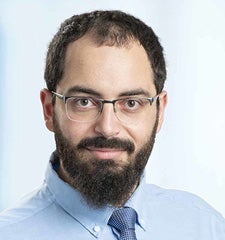 Loukas Kakoullis, MD, PhD, MPH, is an internal medicine physician at Mount Auburn Hospital, where he serves as the chief medical resident. Passionate about infectious diseases and antimicrobial stewardship, his research interests include antimicrobial resistance, emerging viruses, and healthcare-associated outbreaks. He is dedicated to mentoring physicians in training to help them develop the clinical and communication skills required to become compassionate and effective physicians.
Loukas Kakoullis, MD, PhD, MPH, is an internal medicine physician at Mount Auburn Hospital, where he serves as the chief medical resident. Passionate about infectious diseases and antimicrobial stewardship, his research interests include antimicrobial resistance, emerging viruses, and healthcare-associated outbreaks. He is dedicated to mentoring physicians in training to help them develop the clinical and communication skills required to become compassionate and effective physicians.
Kakoullis combines his expertise in medicine and clinical research with a strong commitment to education, and has helped several of his colleagues launch their research careers and publish some of their first publications.
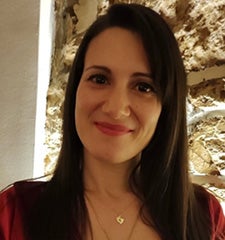 Eirini Lidoriki, PhD, is a researcher who specializes in clinical nutrition. As a postdoctoral fellow at the Harvard T.H. Chan School of Public Health and the Cambridge Health Alliance, she has expanded her focus to public health, developing strategies to promote healthy lifestyles and enhance outcomes for individuals with chronic health conditions.
Eirini Lidoriki, PhD, is a researcher who specializes in clinical nutrition. As a postdoctoral fellow at the Harvard T.H. Chan School of Public Health and the Cambridge Health Alliance, she has expanded her focus to public health, developing strategies to promote healthy lifestyles and enhance outcomes for individuals with chronic health conditions.
Lidoriki plays a key role in advancing public health initiatives, including the development of digital tools to support wellbeing and participation in clinical trials that are aimed at improving cardiometabolic health in vulnerable populations. Her commitment to fostering a safer and healthier community is reflected in her substantial contributions to scientific literature and public health practice.
Interested in connecting with an ambassador? Email us at education@catalyst.harvard.edu.
Vicky Bai, PhD, is associate medical director of clinical science at Takeda, where she helps bring novel therapeutics to patients with cancer to improve their health via science-driven clinical trials. Previously, Bai was a clinical research scientist at Karyopharm Therapeutics, instructor at Harvard Medical School, and a senior clinical research scientist/project manager at Brigham and Women’s Hospital. Bai completed her postdoctoral research training at Harvard Medical School and Brigham and Women’s Hospital. She received her PhD in pharmacology from University of Texas Health Science Center at San Antonio, her master’s in medical science from Peking University Health Science Center, and bachelor’s in medicine from Qingdao University Medical College.
Dayo Fadelu, MD, MPH, is an instructor in medicine at Harvard Medical School, member of the Center for Global Cancer Medicine (CGCM), and oncologist in the Department of Medical Oncology at Dana-Farber Cancer Institute (DFCI). His clinical and research interests are breast cancer, health services research, and global oncology implementation. His research at the Center for Global Cancer Medicine is focused on breast cancer care delivery in Rwanda and Haiti. He utilizes a mixed-methods approach to uncover the causes of poor treatment completion rates in breast cancer patients undergoing curative intent therapy, and designs context-appropriate interventions. Fadelu completed his fellowship training in medical oncology at DFCI and obtained his master’s degree in public health at the Harvard T.H. Chan School of Public Health.
Sudeshna Fisch, PhD, is the associate director of a busy and prolific preclinical core (Cardiovascular Physiology, Department of Medicine, Brigham and Women’s Hospital). Additionally, she serves as guest editor and reviewer for scientific journals, and seeks new collaborations and learning opportunities. Fisch’s research focuses on preclinical therapeutic studies using mouse, rat, and zebrafish models (surgical and non-surgical techniques including advanced cardiac imaging and data analytics). Her prior work includes intellectual property (IP), and research commercialization and grant-funding strategies, with stints at The Broad Institute (chemical biology), Nanobiosym (nanotechnology), Harvard’s Office of Technology Development, Partners office for Research Ventures and Licensing, and Fish & Richardson, LLP. She was born in Calcutta, India, and earned her BS and MS degrees in zoology and genetics from Calcutta University, where she received a National Merit Scholarship award. Fisch received her PhD in biological sciences on a full scholarship from Bowling Green State University in Ohio before moving to HMS for postdoctoral work.
Hamed Khachan, MD MPH, is a clinician-scientist who is passionate about public health, policy, management, health tech, and patient-centered design. He currently works as a clinical research associate at the health technology company ICON where he oversees several clinical trials. He is a dual-certified instructor of youth and adult mental health first aid who leads these courses in collaboration with Cambridge Health Alliance in his local community. His work aims to alleviate healthcare disparities by working with data and research in diverse and underserved populations. He attended medical school in Bangladesh and has practiced medicine in Libya, his country of birth.
Junaid Nabi, MD, MPH, is a public health researcher and medical journalist. A senior researcher at Harvard Business School, he is examining how value-based healthcare strategy can transform care delivery and promote health equity. He is also a senior fellow at the Aspen Institute and a fellow at the Harvard Graduate School Leadership Incubator. His previous projects at Harvard Medical School and Brigham and Women’s Hospital included investigating health system factors that lead to racial disparities in cancer care, evaluating the economic impact of innovative medical technologies, and implementation of novel digital decision support tools into electronic medical records. His ongoing research in medical ethics and global health policy includes studying global health colonialism and healthcare equity, understanding the role of bioethics in artificial intelligence-based medical decision-making systems, and applying principles of behavioral economics in the delivery of healthcare. In 2020, he served as an emerging leaders fellow at the United Nations Association of the United States and coordinated one of the first global lectures on systems-based public health response to the COVID pandemic.
Samira Musah, PhD, is a stem cell biologist and a bioengineer trained at the interface of chemistry, biology, and engineering. She holds a joint faculty position at Duke University in the biomedical engineering and medicine departments. In addition to being a Duke MEDx (Medicine and Engineering Interface) investigator, she is an affiliated faculty of Duke Regeneration Next initiative. Her laboratory’s research covers a range of interests from fundamental studies of stem cell and tissue differentiation to engineered microphysiological systems for disease modeling, diagnostics, and therapeutics. Her lab seeks to advance the understanding and treatment of kidney disease. Musah completed her postdoctoral fellowship at Harvard University, and her PhD from the University of Wisconsin-Madison.

